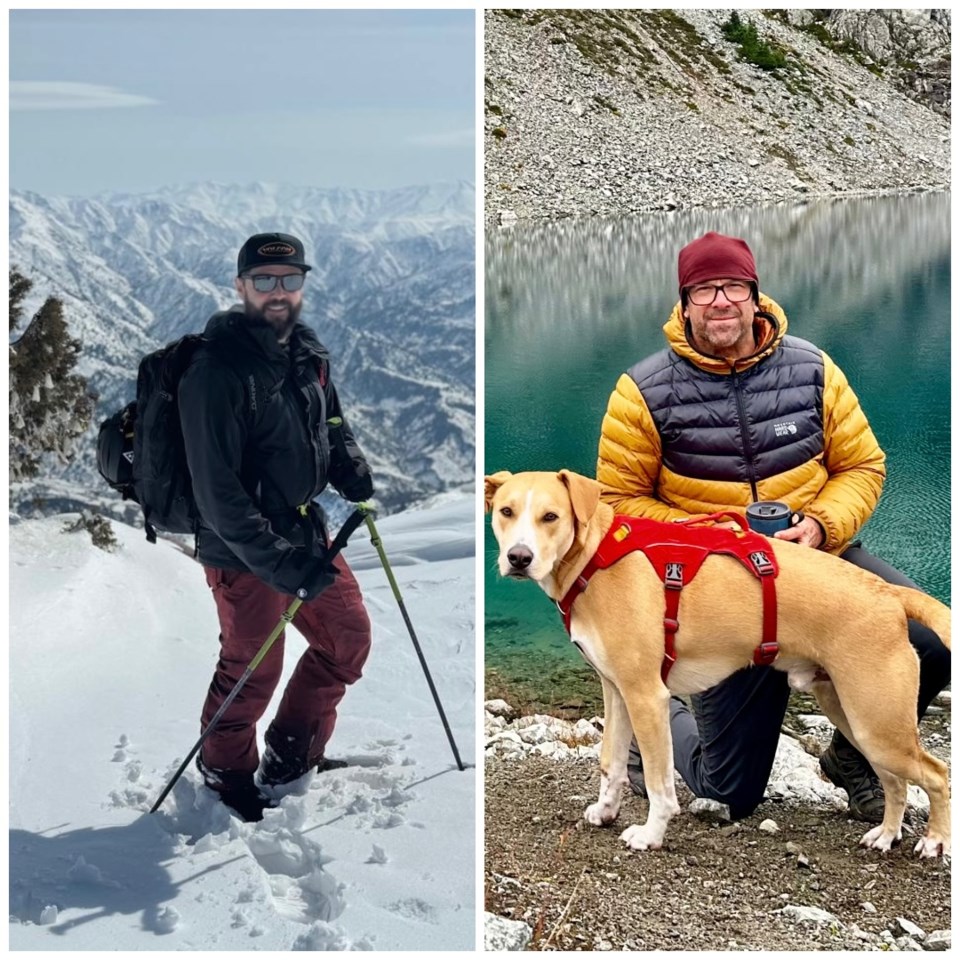While early season conditions created a flurry of activity at Whistler Blackcomb, one resident wants to remind outdoor adventurers of the hazards in and out of bounds.
On Nov. 21, opening day at Blackcomb, Cale Watson was riding with friends. He and five pals grabbed the first chair on Jersey Cream and went left at the top of the lift. They traversed as far as they could on skier’s right and eventually found pillowy powder on Staircase. He let his friends ride out first, and they all bombed down the mountain. Suddenly, as Watson rode at the back of his group, he cartwheeled headfirst into deep, unconsolidated snow.
“I was in this hole upside down, and there was a lot of pressure in my head. I was in a scorpion position, which was completely pitch black,” Watson said. To make matters worse, snow filled his mouth on impact.
“There could not have possibly been more snow in my mouth, I was choking on it,” he said.
Watson has been riding for 32 years and has his Avalanche Skills Training (AST) level one. While AST teaches riders to stay calm during an avalanche and make space to breathe, getting buried in powder inbounds with a snow-caked mouth was another situation entirely.
His immediate focus was removing snow lodged in his mouth, taking precious energy in the emergency. Next, he changed positions to remove pressure on his head and then started digging around his face to clear the snow away.
“Every time, more snow would just come back, and I was suffocating on it,” he said. For a moment, he thought he would die inbounds on opening day.
As he frantically pushed the snow away, light finally pierced the blackness.
“So, I started pushing more snow away faster and faster, and the snow broke open, and I could see blue sky and gasp for air," he said. "And then, another guy in a yellow jacket was pulling me out.”
The man in the yellow jacket was Pete Rozsa. Rozsa was riding alone that day, and as he stopped for a rest, he looked right and saw a snowboard sticking out of the snow.
“I waited a minute. The board wasn't really moving, so I called out," Rozsa said. "There was no response, so I slid over, and I noticed that there were legs attached."
Rozsa noticed Watson's legs move. He immediately started digging, and soon a face appeared.
“I can't remember my exact words, something like, ‘Are you OK? It's OK, buddy,’ kind of thing," he said. "And then I started to dig around his body and his arms, and then he kind of freaked out for a second … because there was still some snow coming back into the hole.”
Eventually, Watson calmed down and Rozsa prepared to go on his way.
As the two went to part ways, Watson asked Rozsa for his name.
“I was in shock, so I said, ‘My name is Pete.”
Rozsa went to walk away and then paused before asking Watson the same question.
“That was kind of it for our interaction,” Rozsa said.
‘There should be friends on a powder day’
Watson found his friends and kept riding, and he had an amazing time. It wasn’t until a few days later the experience sunk in.
“I didn't have time to really slow down until days later when the gravity of the whole thing really hit me,” he said.
For Rozsa, the incident was different. After saving his new acquaintance, Rozsa ended his day and called his wife.
“I was done with the hill that day,” he said.
The biggest takeaway from the incident for Rozsa is re-evaluating how he rides.
“I think I'm going to pick and choose my terrain a little better," he said. "Accidents happen, and I have a whistle and a phone, but it's not good enough. If you see something suspicious in the snow, spend the time and look, because you never know what you'll find.”
Overall, Rozsa estimates the rescue and recovery lasted three minutes. Watson was close enough to the surface that with help, he could get out.
“They say there’s no friends on a powder day. Well, there should be friends on a powder day.”
As for Watson, he said if he could have changed anything, it would be closing his mouth before impact. He and Rozsa plan on having a get together in the coming weeks and he’s grateful for having his life saved.
Retired RCMP officer Steve Leclair heard about the incident and plans to nominate Rozsa for a St. John’s Ambulance Award for his heroic actions. He also reached out to Pique about it, hoping readers will be cautious in the early season.
“I share this to bring attention to the danger that is posed by early season skiing and riding with respect to snow immersion particularly as we have been so fortunate to have such a great start to the season," LeClair wrote in an email. "Remember that hazards exist inside and outside the ski area boundary—ski and ride with care!”






